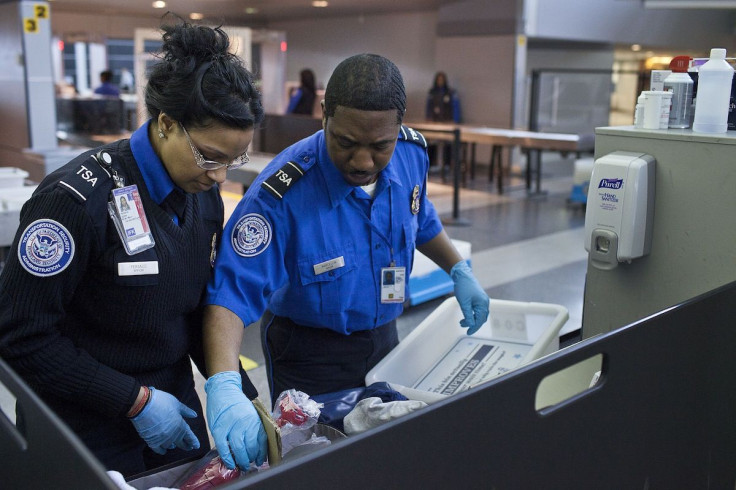Airlines Distribute Vomit Bags With Message: ‘Are Higher Taxes On Air Travel Making You Sick?’

It’s unlikely that the U.S. Congress will raise any taxes as part of its 2014 budget deal, but consumers may see so-called “taxes in disguise” in the form of “user fees,” notably higher security fees at airports that could hike the price of your airfare significantly.
Recommendations to double or triple the fee passengers pay to the Transportation Security Administration every time they fly are included in both the House Republican and White House budget proposals. Critics say such proposals, which in the past have not included any increase in security coverage, use airlines as ATMs to collect money for the government.
Lawmakers hoping to replace some of the automatic spending cuts under the sequester will have to make spending cuts or raise revenues to preserve the sequester’s intended savings before a Jan. 15 deadline. Under the current House proposal, lawmakers may seek to raise the airport security fee from $2.50 per leg of a flight to $5 per trip, effectively doubling the fee on nonstop routes. The president’s budget, meanwhile, proposes both a flat fee of $5 per flight (to rise to $7.50 by 2019) and an air traffic control fee per flight.
Though it remains unclear just how much of the increase would then be passed on to the flying public, leading trade organizations like Airlines for America are noticeably concerned. A4A brought its “no new air taxes” message directly to lawmakers and airline customers Monday as they returned from Thanksgiving break at Washington Reagan National Airport. The organization, whose members and their affiliates transport more than 90 percent of all U.S. airline passenger and cargo traffic, distributed air sickness bags carrying the message: “Are higher taxes on air travel making you sick?”
As part of its “Stop Air Tax Now” campaign, A4A urged frequent fliers to send letters in opposition to the White House and Congress. The trade group said commercial aviation drives more than $1 trillion in U.S. economic activity and supports more than 10 million U.S. jobs, yet is “severely overtaxed.”
The number of aviation fees has increased from six to 17 over the past two decades, while the total amount paid has multiplied from $3.7 billion to $17 billion, according to A4A. So-called “sin” products like alcohol and tobacco, the organization added, are taxed at a lower federal rate than air travel.
“Airline passengers already pay more than their fair share in taxes to the federal government,” said Nicholas E. Calio, president and CEO of A4A. “It’s unreasonable and unnecessary for budget negotiators to be looking to squeeze any more out of an already overtaxed industry and their customers.”
Calio said he understood the difficulty of the challenges ahead for negotiators, “but respectfully suggest they look elsewhere to plug the budget hole.”
Despite opposition from the airline industry, several analysts expect the fees to be included in the final 2014 budget as they offer a veritable win-win situation for both Republicans and Democrats. Republicans could argue they warded off tax increases, while Democrats could say they avoided deeper cuts to their domestic programs.
© Copyright IBTimes 2024. All rights reserved.





















